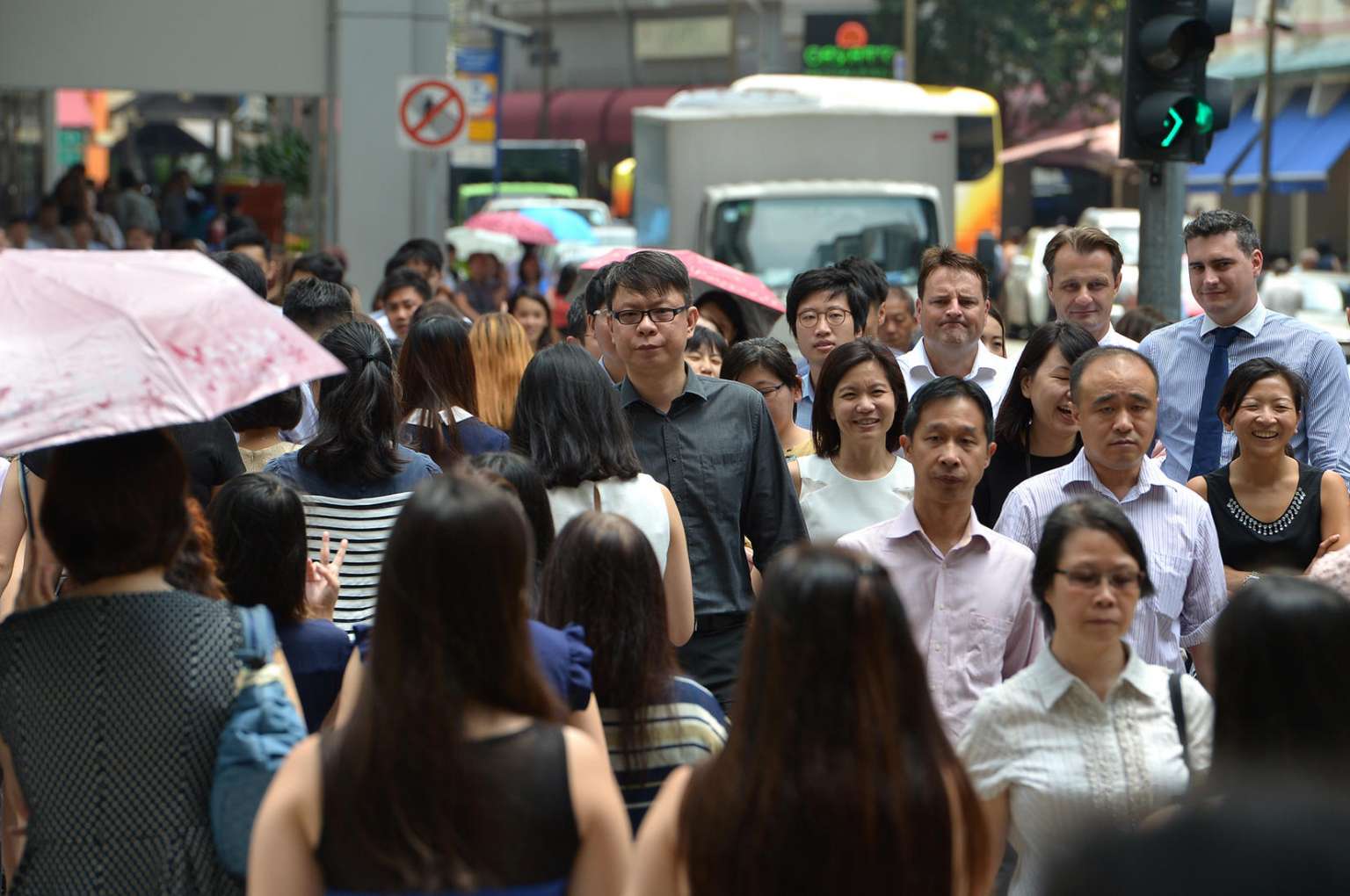From the gallery
The debate is over, but we need to keep talking about race
Sign up now: Get ST's newsletters delivered to your inbox

The Office crowd in the Central Business District (CBD).
ST PHOTO: JAMIE KOH
Janice Heng
Follow topic:
After three days of debate, constitutional amendments on the elected presidency were passed in Parliament yesterday, including changes to ensure minority presidents are elected from time to time.
But as several MPs pointed out, the bigger discussion is not over.
Both in and outside the House, issues of racial representation and prejudice should continue to be examined. Similarly, the newly-passed changes to the elected presidency should spark further discussion: from examining the reasons for the seeming lack of minority candidates to addressing the underlying problems that required a mechanism that would ensure they get elected periodically.
With next year's presidential election reserved for Malay candidates, it is timely to raise the question that Mr Louis Ng (Nee Soon GRC) did: why has there not been a Malay or Eurasian candidate since the introduction of the elected presidency?
If there are barriers - real, perceived, historical, societal or any other - that prevent minority candidates from putting themselves up for election, these deserve to be addressed.
Approaching it from another angle, Workers' Party Non-Constituency MP Leon Perera asked: "Why didn't the Government urge a Malay candidate to run for one of the presidential elections between 1992 and now?"
Nominated MP Azmoon Ahmad urged qualified individuals to come forward. "Let us together prove to our fellow countrymen that the Malays as a minority community are capable and have candidates that are as qualified as the other communities," he said in Malay.
Mr Saktiandi Supaat (Bishan- Toa Payoh GRC) noted the concern that there might not be enough minority candidates, and suggested the changes could be "a call to action" to groom people and build up a talent pool.
And he hoped private firms and organisations would make an effort to be more inclusive and ensure representation on boards and in leadership positions, without compromising on meritocracy.
This is related to a broader point: minority representation should not stop at the office of the President.
One concern which Ms Rahayu Mahzam (Jurong GRC) heard from the community is that there should be Malay leaders in various careers and fields, not just as President.
MPs such as Mr Ng and Mr Perera noted the need to address issues like workplace discrimination.
Further, the role that reserved elections play in the context of existing race relations should continue to be scrutinised - starting with the fact that such a mechanism is necessary at all.
As Nominated MP Kok Heng Leun put it: "The fact that we need to amend the elected presidency to ensure minority representation says a lot about how far the majority is from real engagement with minority races."
Both MPs and office-holders hoped there would come a day when minorities can win open elections, so that reserved elections would no longer be needed.
But whether this ideal progression will happen is an open question. As Ms Cheryl Chan (Fengshan) put it: the challenge will be if, five terms later, a reserved election is required once again.
"Then Singaporeans have to seriously consider whether we have indeed evolved as a country and have been multiracial in our roots and identity," she said
Mr Perera warned of the risk of reserved elections "creating a self-fulfilling prophecy" and entrenching the idea that minorities are unelectable.
Mr Kok noted a possible unintended effect: the Chinese majority could feel that, since the special provision "allows for a Malay, Indian or Eurasian president", there is no need for the majority to understand and support the best candidate regardless of race.
To guard against such trajectories, the conversation on race-related issues must continue.
As Ms Rahayu said: "I feel that this discussion... has created an openness to talk about what used to be perceived a sensitive topic, like race...We should ride this wave and ...engage in these discussions."
The majority Chinese can help by not denying that racial issues exist.
In a heartfelt speech, NMP Chia Yong Yong said she used to avoid talking about race and say she was "colour-blind". "I did not realise that my kind of colour-blindness is blindness," she said. "Just because we do not talk about it doesn't mean that difficulties exist."
Mr Kok went further, saying: "Are we aware that our majority status inherently creates an imbalance that privileges us where resources and opportunities are concerned?"
Noting issues from racist comments to discriminatory job ads, he added: "It is worse when those who voice their discontent regarding such actions are said to be too sensitive or over-reacting by members of the majority race."
Let the discussion of the issues - and scrutiny of how the new provisions play out - continue.

